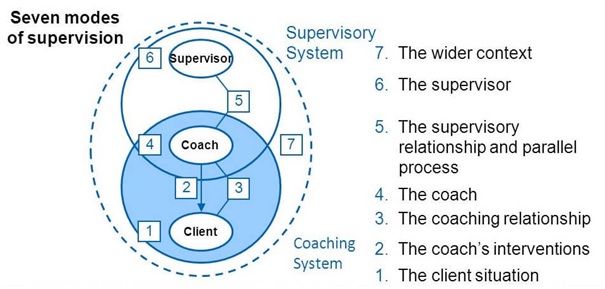Top Tips for Preparing for Coaching Supervision

In the previous 2 blogs on Coaching Supervision, we have explored the concept in theoretical terms, but what are the practical steps one needs to take to engage in this vital aspect of ethical coaching practice?
Judith Barton, Director of Coaching and Mentoring, suggests there is often a push and pull to supervision. What has pushed you to supervision, for example;
1. Feelings – did a session not go as you expected
2. Emotions – are you in danger of moving from empathy to sympathy
3. Feedback – have you received feedback that you need to explore in order to refine your practice
Pull on the other hand is often when we realise the benefit of supervision, the reflection it brings leads to a re-charged coach
How Should I prepare for Coaching Supervision?
Recognise that supervision is about supporting you as a coach, so what area(s)
1. What is going on in your practice?
2) When do you feel the most comfortable?
3) When do you feel less comfortable? What do you notice? What impact does this have on your coaching session?
4) When does your energy lessen in a coaching session?
5) When do you feel challenged in a session?
6) What impact does client feedback have on you?
7) During your coaching sessions, how aware are you of your “internal supervisor?”
8) What has been the most challenging ethical dilemma you have experienced as a coach?
From the above, it is clear that preparing for a Coaching Supervision session involves a wide ranging and comprehensive self- review, requiring honesty and the ability to be vulnerable.
It is also clear that, given the sensitivity and empathy required, contracting must be carefully considered, as a key component to a successful outcome for both Supervisor and Supervisee.
The model below is called the “7 Eyed Model of Coaching Supervision” and was developed by Peter Hawkins and Robin Shohet. The image is taken from www.coacharya.com and is a clear demonstration of the multiple layers involved in coaching supervision. As Ram Ramanathan points out in his blog on this website, Coaching Supervision is not about “honing one’s competencies” it is about “applying coaching competencies to help the coach reflect, become how the coaching process is working for both coach and client, and use this understanding to evolve as a coach. This ties in with the developmental aspect of Supervision (or the “Developer” that De Haan refers to).

The thing to remember when undertaking Coaching Supervision seems to me to be summed up succinctly in the quote below by Mark Twain:
“Continuous improvement is better than delayed perfection.”
Find out how you can develop your skills as a supervisor here.






